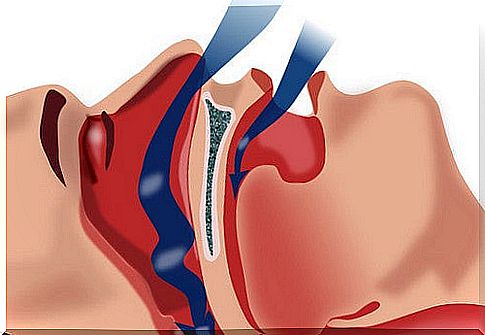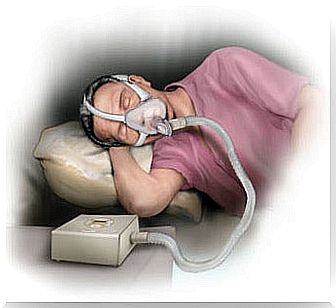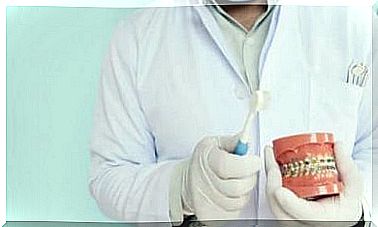Supportive Treatments For Sleep Apnea
If not properly treated, sleep apnea can lead to serious problems, including obesity and heart disease.

In this disease, breathing stops repeatedly during sleep. Those affected feel “artificial breathing” or short breathing pauses during the night. The interruptions can last up to 20 seconds. Learn more about treating sleep apnea in this article .
Sleep apnea – what is it?
This disease disrupts the natural rhythm of sleep. Those affected usually only sleep lightly and therefore cannot recover adequately after a hard day’s work.
Sleep apnea has numerous negative consequences such as low energy consumption, low productivity, reduced attention during the day, slow reflexes, etc. It cannot be treated in the same way as insomnia or drowsiness.
If left unchecked, serious problems can arise from heart disease to obesity, diabetes or high blood pressure. However, with adequate treatment, symptoms can be controlled and good quality sleep can be achieved.
Symptoms
- Pauses in breathing
- Heavy snoring
- Choking hazard
- Panting
- Drowsiness during the day
- Restless sleep
- Feeling short of breath
- Waking up with an irritated or dry throat
- Morning headache
- irritability
- Inability to concentrate
- Mood swings
- depressions
- Unusual sleeping positions
- nightmares
- Tendency to breathe through the mouth
- Increased perspiration at night
- Reduced efficiency

Sleep apnea can be triggered by a number of causes, the most important of which are:
- Obstructive Sc St. afapnea (OSA) : When inhaled, the airways become narrowed due to decreased muscle activity in the throat area. This creates short pauses in breathing, which reduces the oxygen supply to the blood. When this happens, the affected person wakes up immediately as the brain senses an inability to breathe and commands the body to stand up to open the airway. Sometimes it is not necessary to wake up because the mechanism regulates itself again. These episodes can happen more often each night, which can cause tiredness and a feeling of suffocation.
- Central sleep apnea : This is the least common, but it needs to be highlighted. This complaint occurs when the brain is not communicating properly with the breathing muscles. In this case, those affected also suffer from difficulty falling asleep and light sleep. People with heart problems often develop central sleep apnea and wake up frequently in the morning hours.
- Complex sleep apnea : This is caused by blockage of the airways due to various causes or muscle disorders. Reasons can be smoking, obesity, excessive alcohol consumption, nasal congestion, or a family history.
Natural remedies for sleep apnea
The following tips can help you to alleviate the symptoms and keep your airways free:
- Lose weight : Even a few pounds less can help you, because the neck is less compressed. Eat a healthy weight that you can achieve with an adequate, balanced diet.
- Exercise: 30 minutes of physical exercise a day will help. For example, you can go for a walk.
- Avoid certain medications and excessive alcohol consumption: Sedatives, sleeping pills, or antihistamines are harmful in this case. Alcoholic beverages are also not advisable, as they relax the throat muscles and thus affect breathing.
- Sleep on your side or prone: Do not sleep on your back, as this could support the tongue or the soft palate in the throat and block the airways. Some advise sewing a tennis ball or other object onto the back of the pajama to prevent the person from sleeping on their back.

More tips
- Make sure the nostrils are open all night: you can use a nasal spray (saline solution) or nasal strips. Your nose should then always get enough air. Don’t use antihistamines or decongestants, however.
- Avoid the consumption of coffee and large meals: Coffee and heavy meals impair sleep. Then, always allow at least two hours to pass between dinner and sleep.
- Respect sleep times: make sure you sleep regularly, so your body is programmed to fall asleep every night. The apnea episodes and tiredness are also reduced in this way.
- Practice yoga: With yoga exercises you learn to breathe consciously and at the same time the nasal cavities and airways are widened. By practicing regularly, both inhalation and exhalation can be controlled.
- Consume garlic: this will help ease tonsil enlargement and airway inflammation. This makes it easier and more natural for you to breathe in and out. Make a garlic paste, then use more garlic in your food.
Images provided by Cosmetic Dentist Torrance, sman_13, Subhra Patrim Das and Marta Moraschi.









